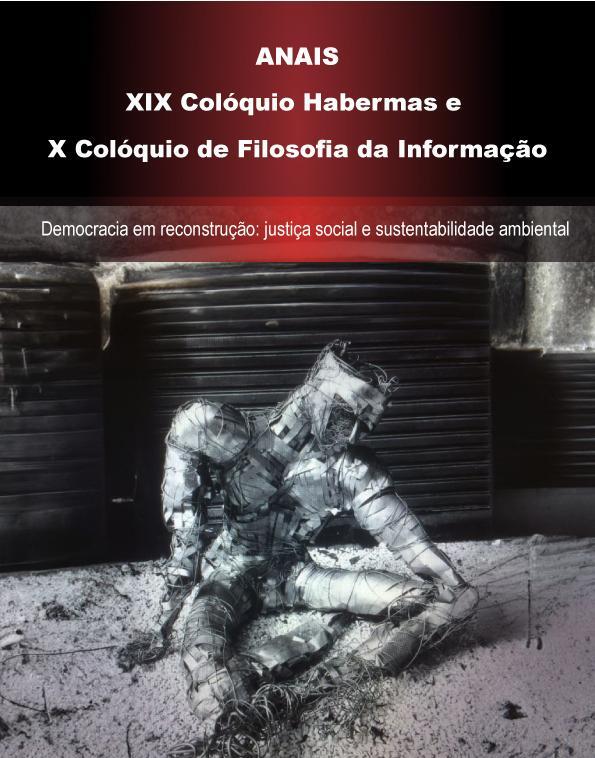DEMOCRACY ACCORDING TO NIKLAS LUHMANN
DOI:
https://doi.org/10.21728/logeion.2023v10nesp2.p529-541Keywords:
Democracy; Social Systems Theory; Niklas Luhmann.Abstract
This article presents the conception of democracy adopted by the Social Systems Theory in Niklas Luhmann's version. Although it is an infrequent topic in the sociologist's work, it was clearly exposed in the article The Future of Democracy, published in 1990. In this article, the conception is presented as a historical hypothesis that was able to predict and explain some characteristics of Western democracy after the fall of the Soviet bloc. The article advances a development of this democratic conception to better understand the resurgence of far-right political movements in the last decade and, on the other hand, to show how such movements are incompatible with the democratic principle proposed by Luhmannian theory.
Downloads
References
AGAMBEN, Giorgio. O que é o contemporâneo e outros ensaios. Chapecó, Argos, 2013.
ARAÚJO, V. M. R. H. A organização espacial da informação científica e tecnológica no Brasil. Ciência da Informação, Brasília, v. 14, n. 1, p. 17-24, jan./jun. 1985.
BACHUR, João Paulo. Democracia, Poder e Deliberação: Uma Perspectiva a partir da Teoria de Sistemas de Niklas Luhmann. Revista Jurídica, Curitiba, vol. 01, n°. 58, pp. 642 - 663, 2020.
LUHMANN, Niklas. Social Systems. Stanford University Press, Stanford, California, 1995a.
_______. Tautology and Paradox in the Self-descriptions of Modern Societies. Sociological Theory, Vol. 6 Issue 1, 21-37, 1988.
_______. The Future of Democracy, Thesis Eleven, 1990. Disponível em: https://journals.sagepub.com/doi/abs/10.1177/072551369002600104.
_______. The paradoxy of observing systems. Cultural Critique No. 31, The Politics of Systems and Environments, Part II, pp. 37-55. Published By: University of Minnesota, Press. (Autumn, 1995b). Disponível em: https://doi.org/10.2307/1354444.
PREGER, Guilherme. Cenários especulativos pós-pandêmicos. Revista P2P Inovação, Rio de Janeiro, Vol. 7, 2020. Disponível em: https://doi.org/10.21721/p2p.2020v7n1.p32-70.
_______. A RE-VOLTA ECOLÓGICA: a transformação digital dos modos de produção e a economia circular. Revista P2P Inovação, Rio de Janeiro, v.8, n.2, 2022.
RIBEIRO, Pedro Henrique Gonçalves de Oliveira. Entre eclusas e espelhos: a esfera pública vista a partir de uma leitura crítica de Niklas Luhmann e de debates contemporâneos. Dissertação de Mestrado, USP, São Paulo, 2012. Disponível em: https://teses.usp.br/teses/disponiveis/2/2134/tde-25062013-091439/pt-br.php.
ROTH, Steffen. Parsons, Luhmann, Spencer Brown. NOR design for double contingency tables. Kybernetes, Vol. 46 No. 8, pp. 1469-1482 © Emerald Publishing Limited, 0368-492X, 2017. DOI 10.1108/K-05-2017-0176.
_______. Digital transformation of social theory. A research update. Technological Forecasting & Social Change 146, p. 88-93, 2019.
SCHMITT, Carl. O Conceito do Político. Lisboa, Edições 70, Almedina, 2021.
Downloads
Published
Issue
Section
License
Copyright (c) 2023 Logeion: Filosofia da Informação

This work is licensed under a Creative Commons Attribution-NonCommercial-ShareAlike 4.0 International License.
The journal is published under the Creative Commons - Attribution - Noncommercial - Share Alike 3.0 Brazil.
The published work is considered collaboration and therefore the author will not receive any remuneration for this as well as anything will be charged in exchange for publication.
All texts are responsibility of the authors.
It’s allowed partial or total reproduction of the texts of the magazine since the source is cited.




